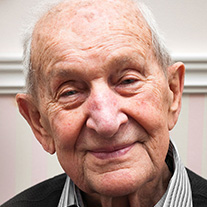Your route through this training

Want an overview?
Click this icon to view a list of sections and pages.

Want to know more?
Click these icons to see recommended literature or detailed additional information.

Lost track of where you are?
Use these buttons to navigate step-by-step through the training.

You can also navigate using your mouse or touchscreen.
What do you want to be when you grow up?
Click on the video to play or pause.

Mit dem Laden des Videos akzeptieren Sie die Datenschutzerklärung von YouTube.
Mehr erfahren
WAIT A MINUTE – WHAT WAS THAT ABOUT?
Kids often believe that certain professions are only for certain genders, and they could think it's impossible or not allowed for a boy to grow up to work in a 'female' job.
As adults we might think it's kind of cute. But that pattern of behavior has nothing to do with age.
We all base our actions on our past experiences – which means we subconsciously develop preferences and expectations without checking for alternatives. In short: our subconscious thought patterns steer us through many situations.
See for yourself …
Does this old guy know how to use the Internet?
Is it a good idea to rent my apartment to this woman?
Is this woman even capable of holding down a management role?
Does this young man already have what it takes to be mayor?
What directs us as we answer these questions?
When we try to assess or judge a person, we often unconsciously draw on outward appearance and assumptions. Without our even being aware, we run the risk of excluding people who don't fit the "labels" we give them.
Let's take a closer look at this phenomenon:
Unconscious Bias



Now let's really get to grips with these subconscious thought patterns
Pay close attention as you watch this next video. There'll be a quiz afterward.
Click on the video to play or pause.

Mit dem Laden des Videos akzeptieren Sie die Datenschutzerklärung von YouTube.
Mehr erfahren
Please answer these three questions:
How many red buses were driving along the street?
Click on the correct answer.
2 buses
3 buses
Well done.
Almost.
What was the name of the first store on the left side of the road?
Click on the correct answer.
Excellent.
Almost.
What is the route number on the last bus visible in the video?
Click on the correct answer.
Well done.
Almost.
It's hard to remember all the details because ....
… at any one moment we're processing around 11million individual pieces of information …
… but our brain only captures about 50 …
… and our short-term memory can only pick up on 7 new elements at a time.



For us to be able to take action despite this flood of information, our brain needs to filter and sort everything quickly.
To do that it accesses a kind of template, i.e.
Mental shortcuts/heuristics
For this experiment try and make quick, intuitive decisions
Take a deep breath and then start this little math exercise. You have 20 seconds to submit your answer. Ready?
A baseball bat and a ball together cost $ 1.10. The bat costs exactly $ 1 more than the ball..
How much does the ball cost?
Click on the correct answer.
1 dollar
10 cents
5 cents
Well done.
Incorrect.
You weren't fast enough this time.
The ball costs 5 cents.
So what about role models?
What is your attitude toward men, women, career, and family?
Take the Chef:innensache test and find out how closely you associate, e.g., the words 'career' and 'female'.
What does this test tell us?
More than 80,000 similarly structured implicit association tests at the Harvard University have shown that:
Almost all of us have subconscious preferences, which makes us biased on the subject of careers.
We now know that:
All human beings take mental shortcuts. It's how we've evolved and it helps us process our complex world.
In short: in certain situations we're all subject to unconscious biases.
We categorize so that we can make quick decisions. What's important is that we recognize when subconscious thought patterns are steering us toward bad decisions.

